Women’s conductor
« I had a dream… »
Zofia Wislocka, Orchestra Conductor (Belgium)
Having struggled for years to establish herself in her profession, the Belgian-Polish conductor Zofia Wislocka wanted to explore this problem in greater depth by meeting her colleagues.
They existed (some 500 around the world) but were little talked about.
And while there were a few women conducting chamber orchestras and choirs, it didn’t seem to be any conducting large symphony orchestras. Did they too have to fight against the same tenacious prejudices? How did they live their careers?
Why not meet up, get to know each other and try something together?
This dream came true in 2000.
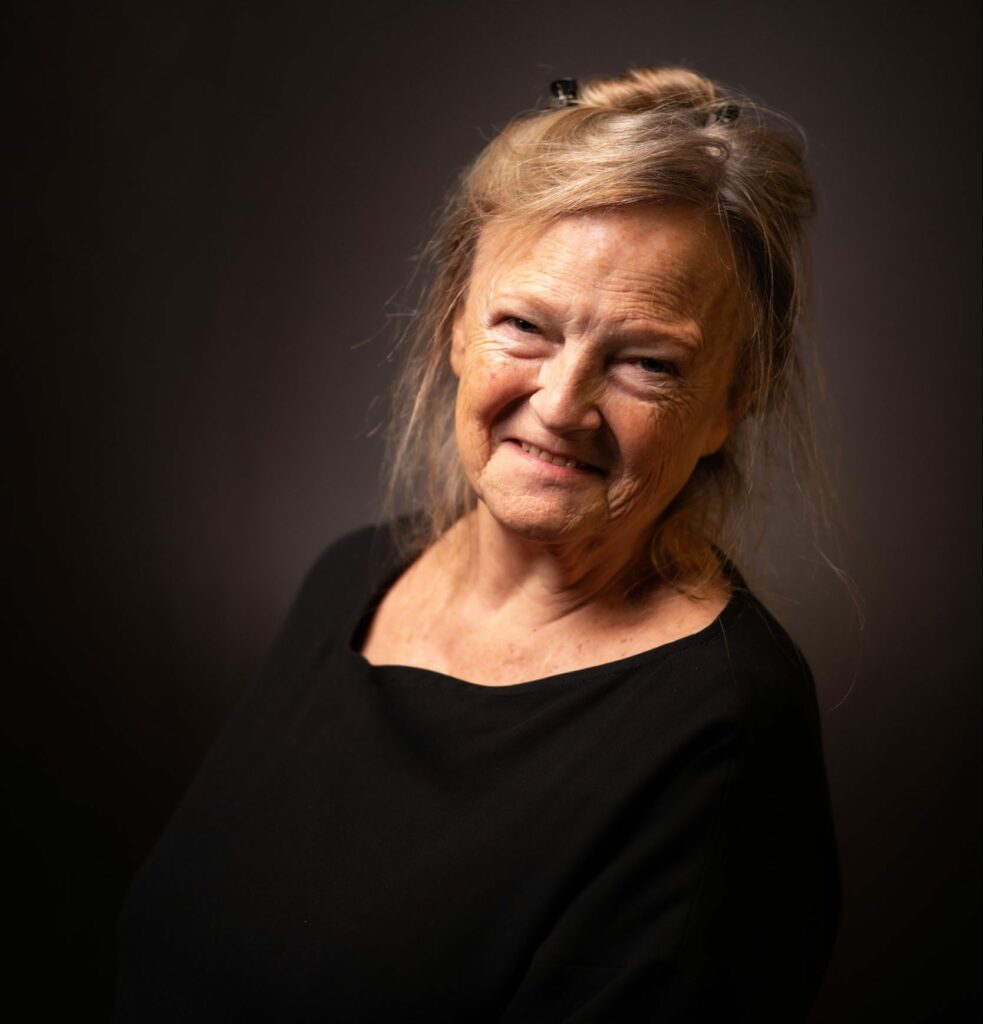

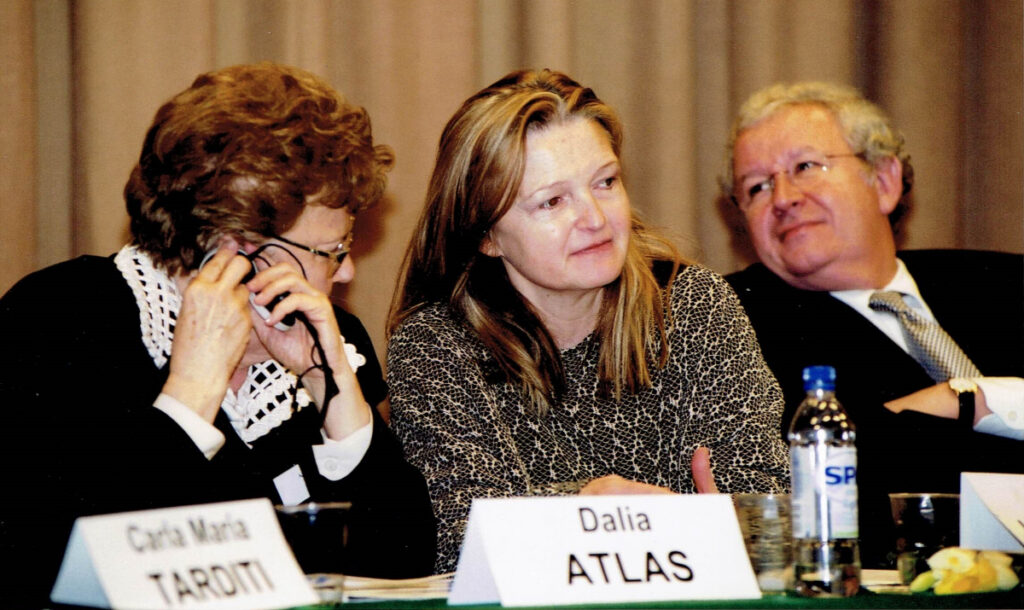
OBJECTIVES
Building a “Culture” that recognizes and integrates women is a major democratic challenge.
Working together to achieve equal cultural opportunities is a challenge we can rise to, thanks to a partnership between public and private players.
The “Organisation Mondiale des Femmes Maestros” wishes to engage in a constructive process with public bodies and private sponsors, in order to meet common objectives and take up the many challenges that will enable women conductors to flourish fully in an economic, social and cultural environment worthy of the 21st century.
With this in mind, the Organization wishes to establish contacts with cultural associations that pursue a similar goal of promoting women.
Promoting the association is in itself a vast administrative, artistic and communications program.

OBSTACLES
“Women belong in the kitchen, not in the orchestra”.
Herbert von Karajan, conductor (Germany)
One opinion among many. But it sums up the problems that all the participants in the two symposia said they were facing.
The maestro is a symbol of authority, a highly visible one, much more visible than in other professions.
This figure who stands before a large audience, in a large hall, mounts a pedestal and leads some 130 musicians by the baton… Doesn’t he seem like a tamer? A female figure on the podium is still astonishing.
And yet, as everyone will tell you, a true conductor draws his authority from his musical skills.
This image of domination was analyzed first and foremost by the record industry, which carefully nurtured it for purely commercial reasons.
And this is the second major obstacle that female maestros have to overcome.
The profession’s image of virility conceals an economic reality: the female maestro is up against the logic of profit, the politics of cronyism, the opposition of certain circles where the last thing to be considered is talent, the closed circle of the majors and their “stables”.
In short, she sells less well than her male colleagues.
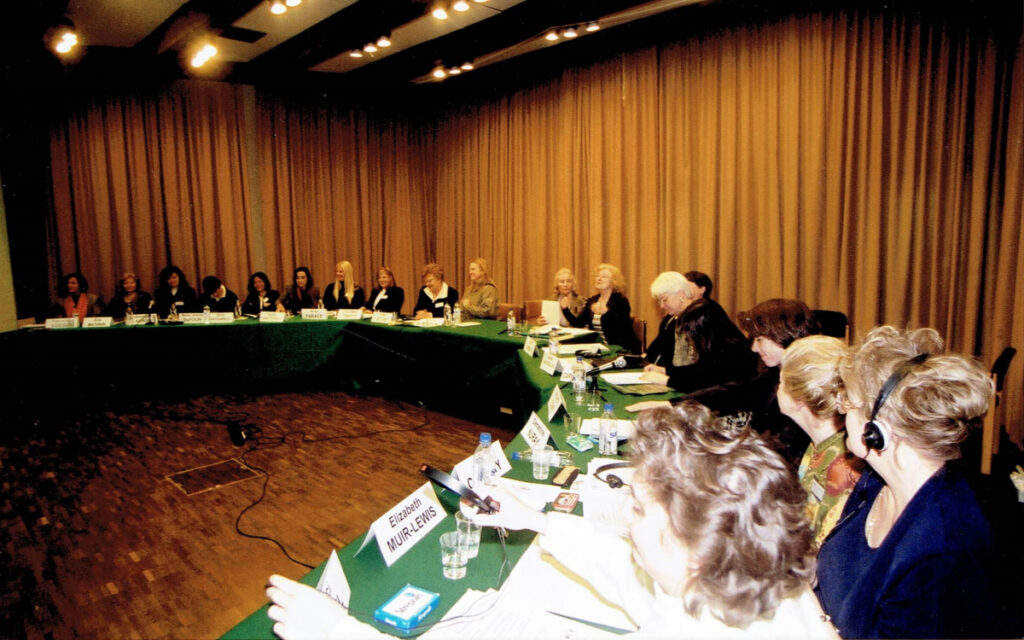

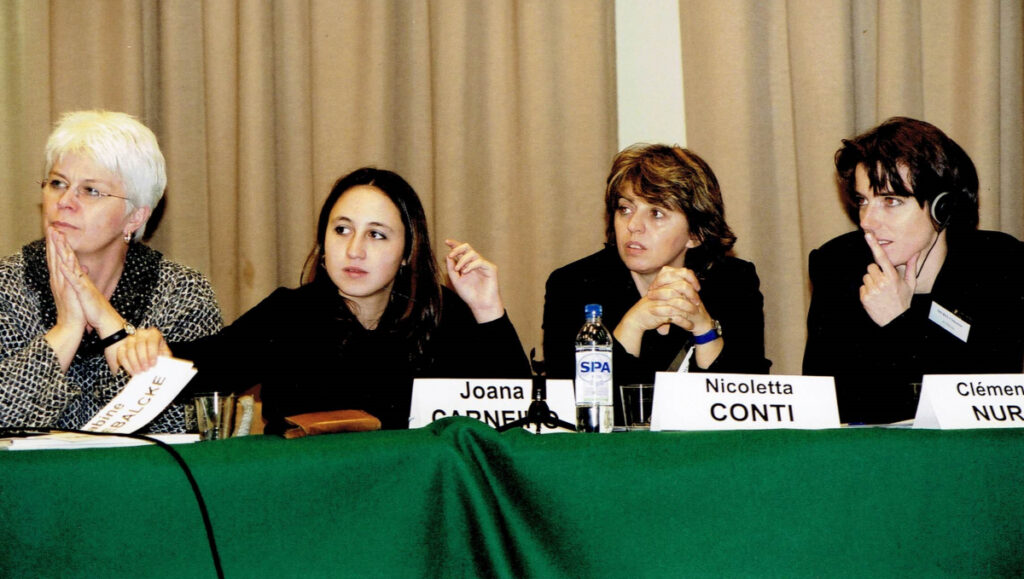
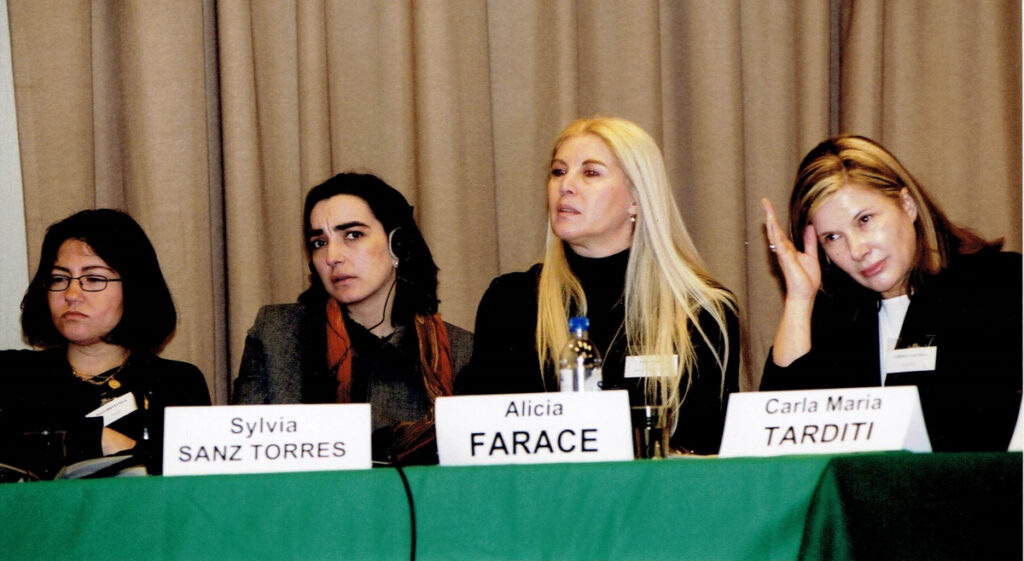
A BET ON THE FUTURE
“A maestro is not necessarily a gentleman”.
Norman Lebrecht, writer and cultural commentator (Great Britain)
The members of the “Femmes Maestros” association have always insisted that their approach is in no way directed against male conductors.
And some men have understood this. Starting with Sir Simon Rattle, who was one of the first to express his sympathy for the association. And in his writings, the writer and musicologist Norman Lebrecht invites music lovers to fight against these antediluvian prejudices and demands that women conductors be given the confidence they deserve. They may be our best hope,” he concludes.
Which ties in with what we’re saying here. Attitudes are changing. Even if women are still few and far between on the podium, we are no longer surprised to see them there.
Already at the 2003 Colloquium, we saw the emergence of a young generation who are no longer discouraged and intend to take their destiny into their own hands. They are not waiting for a random commitment, but are coming together as young people to create opportunities for themselves to practice their profession. By seeking out or organizing events, by bringing together newly qualified instrumentalists in orchestras.
The association is there to help them… until such time as it is no longer needed.
Because we only wish one thing. It’s that one day this ‘Femmes Maestros’ association, which we have so ardently created and which we are keeping alive at arm’s length, will cease to exist.
Because we won’t be needed any more, because mentalities will have changed, dragging economic realities in their wake.
Because the day will finally have come when, on the podium, we will no longer see a man or a woman, a pair of trousers or a petticoat, to use Richard Strauss’s expression, but quite simply a competent musician.
In March 2000, the late Françoise Giroud wrote to us:
“I don’t know whether an Association of Women Maestros will help them to overcome some of the specific difficulties they still have to face, like all women who aim high, but I wish them all courage and success”.
Have we overcome her doubts? Did we meet her expectations? Where are we now?
While some projects have come to fruition, other achievements are less visible. But we can say that the attitude towards women maestros has changed.
In a positive way.
Back in 1999, when we were preparing our first Round Table, the very idea of a woman conducting a major symphony often provoked amused incredulity. Today, a woman stepping up to the podium is no longer a surprise… or much less so…
Last year, the Queen Elisabeth International Music Competition invited a woman to conduct the finals for the first time.
Did we contribute to this? Let’s be modest. Yes, we did, within the limits of our means…
And we would like to thank our patrons who have supported us and, we dare to hope, will continue to support us… Because however modest our action may seem, we can affirm that it has not been in vain.
We will continue our work in order to achieve, in the more or less near future, the goal we set ourselves in 2000.
Then our association will no longer need to exist, because on the podium we will no longer see a man or a woman, but quite simply a competent musician.